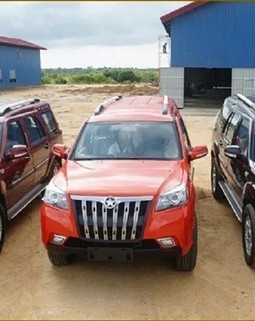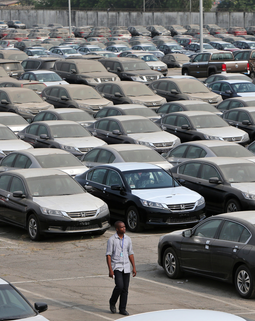The automotive industry in Ghana is at a critical juncture as local automakers push for a ban on aged vehicles, hoping to transform the sector and enhance road safety across the nation. The call for this ban has sparked a significant debate, with industry stakeholders and policymakers weighing the potential benefits and challenges. At the center of this discussion is President Akufo-Addo, whose decision could shape the future of Ghana’s automotive landscape. This article explores the reasons behind the push for the ban, its potential impact, and the considerations that the government must take into account.
The Rationale Behind the Ban on Aged Vehicles
One of the primary motivations for advocating the ban on aged vehicles is to support the growth of Ghana’s nascent automotive industry. The influx of old and often poorly maintained vehicles from abroad has been a major obstacle to the development of a robust local manufacturing sector. These imported vehicles, typically over a decade old, dominate the market due to their affordability, making it difficult for locally assembled cars to compete.
Ghana’s automakers argue that a ban on these aged vehicles would level the playing field, encouraging consumers to purchase newer, locally assembled cars. This shift could stimulate local production, attract investment, and create jobs within the industry. Moreover, it aligns with the government’s broader industrialization agenda, which aims to reduce the country’s dependence on imports and promote domestic manufacturing.
Another key argument for the ban is the improvement of road safety. Older vehicles are more prone to mechanical failures and often lack modern safety features, contributing to the high rate of road accidents in Ghana. By reducing the number of these vehicles on the road, the government could significantly enhance public safety and reduce the burden on the country’s healthcare system.
Challenges and Opposition to the Ban
Despite the potential benefits, the proposal to ban aged vehicles faces significant opposition. One of the main concerns is the impact on low-income consumers, for whom these older vehicles are often the only affordable option. The ban could limit access to transportation for many Ghanaians, particularly in rural areas where public transport options are limited. This issue raises questions about the social equity of the policy and whether it could exacerbate existing inequalities.
Moreover, there is concern that the ban could lead to unintended economic consequences. The importation of used vehicles is a major industry in Ghana, providing livelihoods for thousands of people involved in sales, repairs, and related services. A sudden ban could disrupt these businesses, leading to job losses and economic instability.
The potential for an increase in the cost of vehicles is another critical consideration. Without the competition from used cars, prices for new and locally assembled vehicles could rise, making them less accessible to the average consumer. This could slow down the adoption of newer vehicles and undermine the objectives of the ban.
The Government’s Role and Potential Solutions
As the debate continues, all eyes are on President Akufo-Addo and his administration. The government’s response will be crucial in determining the outcome of this initiative. While the automakers’ arguments for the ban are compelling, the concerns raised by opponents cannot be ignored.
One potential solution could be the introduction of a phased approach to the ban, allowing time for the local automotive industry to scale up production and for consumers to adjust. Additionally, the government could offer incentives, such as subsidies or tax breaks, to make locally assembled vehicles more affordable and appealing to consumers.
Another avenue could be the implementation of stricter regulations on the importation of used vehicles, such as age limits or mandatory inspections, to ensure that only safe and well-maintained vehicles are allowed into the country. This approach could address safety concerns without completely eliminating the market for used cars.
Conclusion
The push for a ban on aged vehicles in Ghana highlights the complex interplay between economic development, social equity, and public safety. While the proposal has the potential to drive significant growth in the local automotive industry and improve road safety, it also presents challenges that must be carefully managed. As President Akufo-Addo and his administration consider their response, the decisions made will have lasting implications for the future of transportation in Ghana.





